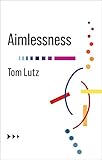Epistenology : wine as experience / Nicola Perullo.
Material type: TextSeries: Description: 1 online resourceContent type:
TextSeries: Description: 1 online resourceContent type: - text
- computer
- online resource
- 9780231553063
- 9780231552202
- TP548 .E657 2021
- COPYRIGHT NOT covered - Click this link to request copyright permission: https://lib.ciu.edu/copyright-request-form
| Item type | Current library | Collection | Call number | URL | Status | Date due | Barcode | |
|---|---|---|---|---|---|---|---|---|
 Online Book (LOGIN USING YOUR MY CIU LOGIN AND PASSWORD)
Online Book (LOGIN USING YOUR MY CIU LOGIN AND PASSWORD)
|
G. Allen Fleece Library ONLINE | Non-fiction | BJ1498 (Browse shelf(Opens below)) | Link to resource | Available | on1193559859 | ||
 Online Book (LOGIN USING YOUR MY CIU LOGIN AND PASSWORD)
Online Book (LOGIN USING YOUR MY CIU LOGIN AND PASSWORD)
|
G. Allen Fleece Library ONLINE | Non-fiction | TP548.5.5 (Browse shelf(Opens below)) | Link to resource | Available | on1154131807 |
Intro -- Table of Contents -- Note for the Reader -- Acknowledgments -- Part I. Wine and the Creativity of Touch -- Prologue -- 1. Meeting with Wine -- 2. Haptic Taste -- 3. The Creativity of Touch -- 4. The Languages of Wine, All of Them -- Part II. Taste as a Task -- 5. Reestablishing Bonds -- 6. Without a Theme -- 7. Without Method -- 8. Without Competency -- 9. Without Judgment -- 10. Taste Is Not a Sense but a Task -- 11. Stories Without Instructions -- 12. Terroir Is the World -- 13. Inebriation and Intoxication -- Notes -- Bibliographical Note -- Essential Bibliography -- Index
"We think we know how to appreciate wine-trained connoisseurs take dainty sips in sterile rooms and provide ratings based on objective knowledge and technical expertise. In Epistenology, Nicola Perullo vigorously challenges this approach, arguing that it is the enjoyment of drinking wine as an active and participatory experience that matters. Perullo argues that wine comes to life not in the abstract space of the professional tasting but in the real world of shared experiences; wines can change in these encounters, and drinkers along with them. Just as a winemaker is not simply a producer but a nurturer, a wine is fully known only through an encounter among a group of drinkers in a specific place and time. Wine is not an object to analyze but an experience to make, creatively opening up new perceptual possibilities for settings, cuisines, and companions. The result of more than twenty years of research and practical engagement, Epistenology presents a new paradigm for the enjoyment of wine and through it a philosophy based on participatory and relational knowledge. This model suggests a profound shift-not knowledge about but with wine. Interweaving philosophical arguments with personal reflections and literary examples, this book is a journey with wine that shows how it makes life more creative and free"--
COPYRIGHT NOT covered - Click this link to request copyright permission:
There are no comments on this title.
